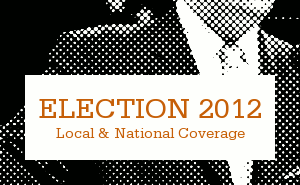Pittsburgh City Council heard public testimony Wednesday about a federal Environmental Protection Agency proposal to curb carbon pollution from new coal-fired power plants.
All of the speakers at the hearing supported the EPA’s proposed rule, which would cap carbon emissions from future coal-fired plants at 1,000 pounds of carbon dioxide per kilowatt-hour. The unprecedented regulation would not cover existing plants, or those built within a year of the rule’s adoption.
In order to meet the requirements, new coal-fired power plants would have to install “carbon capture” technology to cut down on CO2 emissions.
Many speakers at Wednesday’s hearing pointed out that the EPA identified carbon pollution as a contributor to global warming in 2009.
Women for a Healthy Environment Executive Director Michelle Naccarati-Chapkis said CO2 emissions also exacerbate breathing problems like asthma, particularly in children. She said her interest in reducing the emissions extends beyond the professional.
“I’m also a mother of three children, two of whom have been diagnosed with asthma. I know what it’s like to go and get a call from the nurse, saying that your child is having a breathing difficulty, and to get to the schools,” said Naccarati-Chapkis. “It’s time to demand cleaner air for our families.”
In the absence of opponents to the EPA proposal at the hearing, a few people set up straw-man arguments. Peter Wray of the Sierra Club said industry supporters would call this proposal part of a “war on coal,” but he thinks the EPA is showing “considerable restraint.”
“It needs to be emphasized that the proposed rule only applies to new power plants, and surely the recommended application of best available technology should be but a standard practice for a modern-day industry,” said Wray.
The EPA held public hearings on the proposal in Washington, D.C. and Chicago on May 24. The public comment period nationwide is open until June 25.






